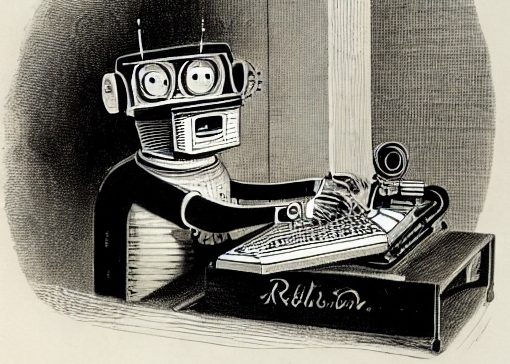ChatGPT: The Enemy of Academic Integrity?

ChatGPT is a chatbot that uses advanced natural language processing technology to simulate human conversation. While ChatGPT and other similar chatbots have many potential uses, such as providing customer service or engaging in social media conversations, they also raise concerns about their use in online assignments. With the ability to generate responses on demand, ChatGPT and other chatbots could be used to cheat on tests or complete assignments without actually doing the work. This is a growing concern for educators and students alike, as the use of such technology becomes more widespread and sophisticated. Not only does it undermine the integrity of the education system, but it also puts students who do not have access to these tools at a disadvantage. It is important for educators to be aware of the potential use of chatbots in online assignments and to take steps to prevent their use in order to maintain the authenticity and value of online education.
Now, I know what you’re thinking. Sure, AIs like ChatGPT are good, but they can’t be that good, right? Take a second glance at that last paragraph. Though grammatically correct and fairly natural-sounding, all 157 words were written in mere seconds by ChatGPT. A similar paragraph would’ve taken me upwards of 15 minutes to write, not even considering the editing process. Not only can ChatGPT write a reasonably accurate and engaging paragraph at first glance, but it passes all the tests that we use before turning in assignments. Grammarly? Check, it passes with a score of 88. Its primary weakness is a lack of rare vocabulary, and the only suggested edits are behind Grammarly’s paywall. Google Docs has no suggestions, and it even passes Google Classroom’s Originality Report with minimal hiccup.
ChatGPT raises concern in a variety of subjects, not just English. Consider a typical history prompt. I took one from freshman year where I was asked to analyze the primary causes for the fall of Rome. Like with my prompt for the introduction to this article, ChatGPT was easily able to interpret my request and produce a grammatically correct, fairly interesting 1000-word essay (with scholarly sources) in under a minute. In more quick tests, ChatGPT proved competent at responding to prompts in French and Spanish, as well as solving AP Calculus free response questions (word problems that often require theorems and multiple steps).
So what does this mean for the future of online writing assignments? Honestly, it’s hard to say. While mostly accurate, ChatGPT still has its drawbacks. Having been so increasingly popularized over the course of the past few weeks, the site is consistently laggy and struggles to process the most basic of requests after running for too long. When asked to summarize specific sources or articles, the chatbot claims to not have access to articles or internet services which raises questions. While ChatGPT is absolutely still in its testing stages, it fuels undeniable concern about the future of online assignments and how AI may play a role in academic integrity.
Right now, the potential responses to ChatGPT are still up in the air. Will schools even attempt to monitor this? Does this open the door to a new conversation about ethics and morality in academics? As robots take over thinking, will expediency trump the value of learning?
